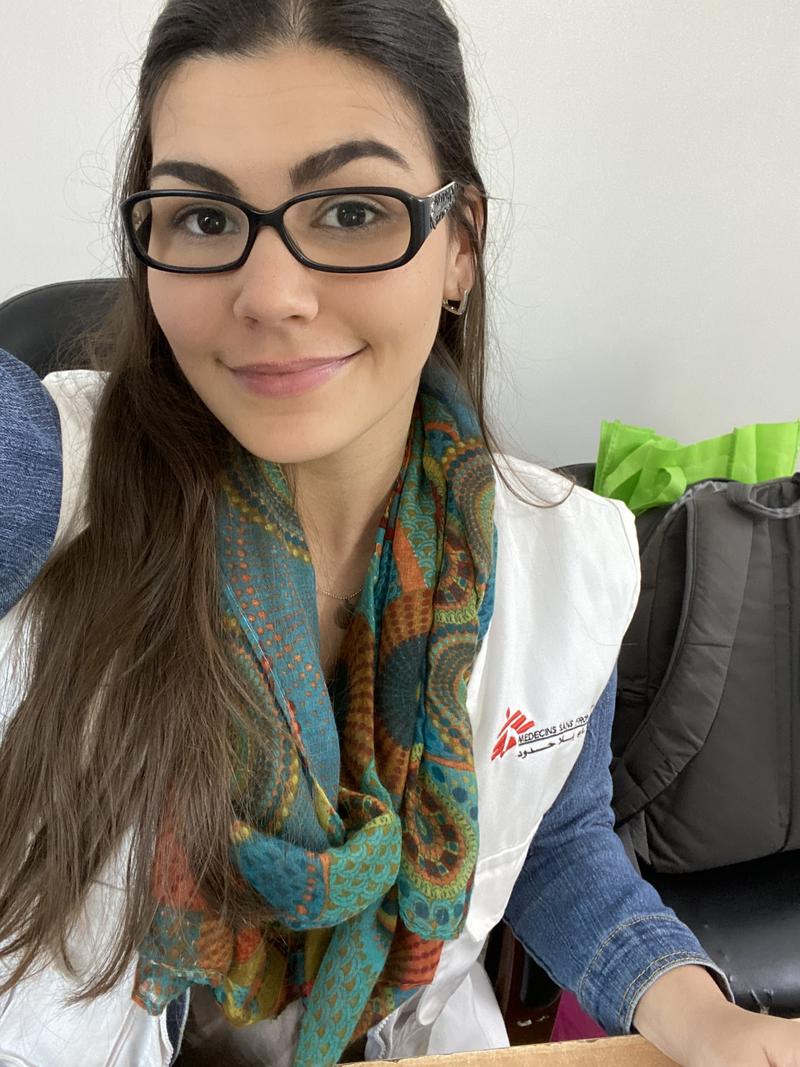Amparo Villasmil, is a psychologist at the mental health project in Hebron run by Médecins Sans Frontières /Doctors Without Borders (MSF). She arrived in 2019 and is part of the team providing remote psychological support to the people affected by the COVID-19 outbreak.
The current COVID-19 epidemic exposes people to several risks. We can be infected and infect others. We might have to self-isolate or see our family members hospitalised without even being able visit and support them, or, in the worst case, we may even lose our loved ones with no possibility of a funeral. People may also lose their jobs and face financial hardship. But in Palestine, all that just adds to the long-time effects of living under occupation. Here, the pandemic has exacerbated feelings of anxiety, frustration and uncertainty, not only about the future but also about the present.
It has become very hard for people to cope with this situation.
The outbreak has brought severe lockdowns to Hebron and, while having to live with limited mobility is difficult in every corner of the world, here in Palestine this also translates into severe working restrictions, as many Palestinians work in Israel. For many of them, not being able to provide for their families and having difficulties to buy food or medicines creates a lot of stress. An additional source of concern is the stigma attached to the virus and what that means in the community. Besides causing rejection and increased isolation, being COVID-19 positive can reduce even more the scarce opportunities to overcome the tough economic situation.
Challenges of psychological support in COVID times
MSF has been providing mental health support for years in Hebron, but the COVID-19 pandemic pushed us to adjust our intervention. In addition to our usual targeted population, namely those suffering from mental health issues linked to the violence, we started phone consultations for people suffering mental stress and anxiety problems due to the pandemic. We have a free hotline service for the Hebron area, where callers receive support from our counsellors and psychologists. We are targeting some groups especially affected by the outbreak, such as medical staff, COVID-19 patients and their relatives, or people in quarantine. Our aim is to help them strengthen their coping mechanisms to face this new situation.
With our activity, we are trying to help our beneficiaries restore some sense of routine and normality, so they can at least find some stability in these uncertain times.
Obviously, psychological consultation over the phone brings some challenges. It can be more difficult to ensure confidentiality and a safe private place to speak freely. Most of our patients live at home with their families, with virtually no privacy, making it very uncomfortable for them to speak openly on the phone about painful feelings and experiences.
This problem is especially noticeable in victims of domestic or sexual violence, or patients suffering severe disorders that increase the importance of having close contact with the therapist.

Another big challenge for group therapies done over the phone is that they require everyone involved to be living in the same place. And if they are done via a virtual meeting platform they require a good internet connexion and familiarity with new technologies, which our beneficiaries do not always have. An additional challenge has been the follow-up of our child patients (around a third of our usual beneficiaries), which is more challenging via remote therapy. In these cases we have asked their parents to be more involved in the treatment as they become essential bridges between the therapist and the patient.
Despite all these problems, our team has managed to perform over 70 counselling and psychotherapy sessions per week, as well as specific first aid sessions for 60 extra beneficiaries every week. Our intention is to keep reaching out to our patients and to assure that we are here to help so they can get in touch.
This is a project focused on mental health, but obviously we have looked for additional ways to support authorities, local committees and other organisations and we are distributing hygiene kits and conducting COVID-19 awareness and prevention sessions to help protect the community itself from the virus.
MSF has been providing mental health support in Hebron since 2001 for people who suffer from mental health issues as a result of violence. MSF provides mental health support through home visits, individual and group sessions, and psychotherapy sessions across the district. Since COVID 19 cases were first recorded, teams adapted the activities to continue to be able to provide psychological support to the people in need over the phone. In Hebron district, the MSF team started providing remote counselling to support some of the people most affected by the COVID 19 outbreak, such as patients and their families, medical personnel, as well as families of detainees. Meanwhile, the team is participating in the effort to reduce transmission in the community by distributing hygiene kits to affected households and carrying out health and mental health promotion activities.
- Read more on our international website:


